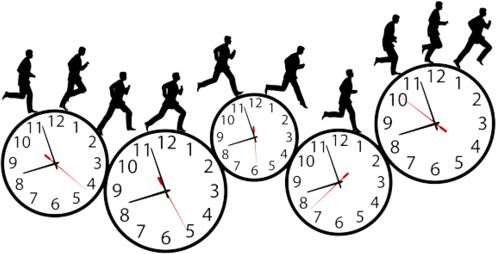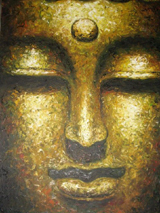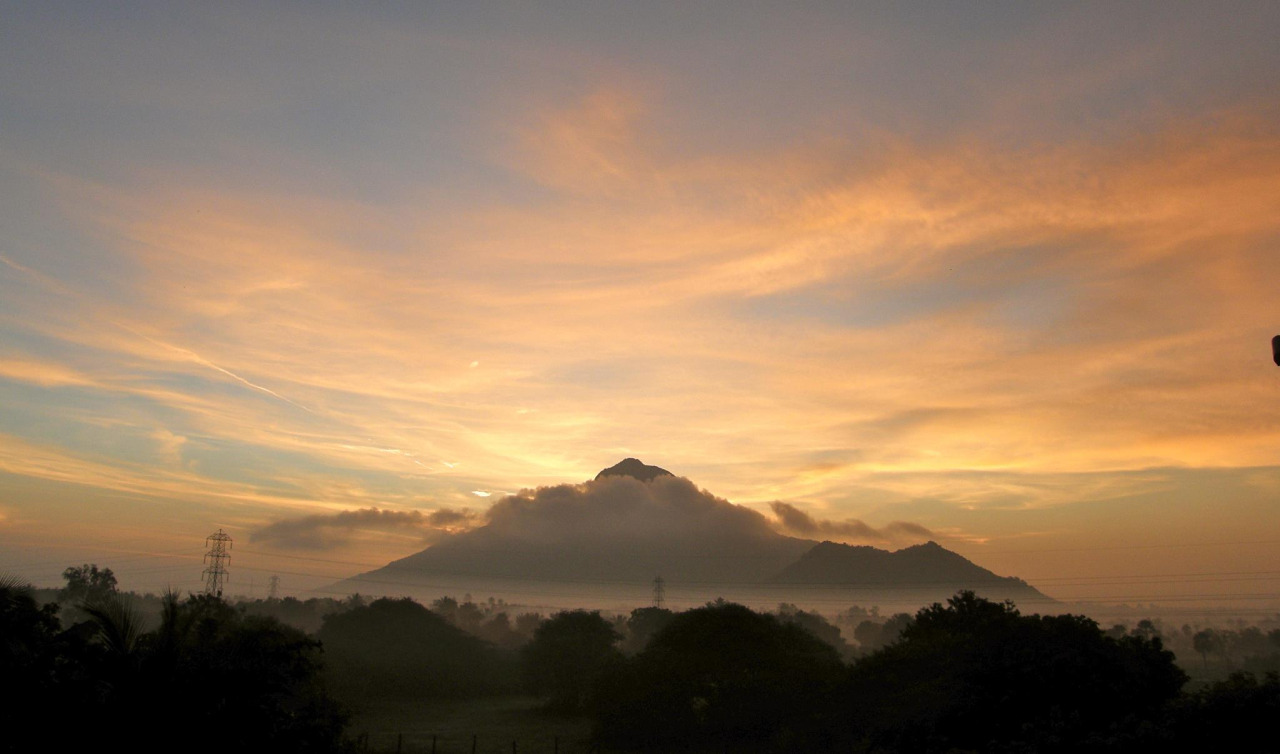Death
Dying every single day
Abstract
What’s the one thing we humans can never ever get back? Yes, it is time, precious time. To bring this awareness sharply to mind, Buddhists teach a simple three-point meditation on the inevitability of death: 1) that death is certain; 2) that the time of death is uncertain; and 3) that when we die, we can take nothing with us but our state of consciousness. Practising this analytical meditation regularly can work wonders in leading us to liberation. It also gets rid of the endless crud clogging our spiritual arteries — so we can focus on our greatest passions instead of a thousand-and-one paltry affairs that won’t matter a whit as we approach the final curtain on this lifetime..
A brilliant monk held a motley crew of us dharma students in thrall for many years in the Big Apple. “All right,” he’d drawl as his eyes lazily scanned the room. “So you’re all so cool with your stylish black wardrobes and your sophisticated friends. You live in the hippest city in the world and you think you’re doing great. And in the eyes of the material world, that’s true — fat paycheques, nice apartments, great social life, lookin’ good, lookin’ good.”
He’d pause for effect then continue into the rapt silence. “But tell me: what’s the one thing your bosses can never recompense you for? Ah! You got it, smart people — it’s precious human time! Some of you are doing wonderful things for the sake of humanity. Yes, there are literally thousands of good things you can do with your lives — but, if you listen to the great mystics, the highest goal of human life is permanent liberation from suffering — which is why everyone in this room has chosen to take the Bodhisattva Vow: to seek enlightenment for the sake of all beings.
“To enter the Spiritual Olympics you need not just a clear mind but a strong body and perfect commitment — and if you believe that before you begin this inner journey you must first amass money and tie up all your relationships and assets into neat packages that look oh so pretty, there’s a good chance you won’t have those assets when you’re free to discover who you really are — which also means that day of liberation might never come. So, folks, if you really do want to start the greatest journey of all, start it NOW!”
This teacher gave us incredible tools, many of which I still use. Among them was a Death Meditation so simple and profound that over the next few years it infused me with enough courage to exit Manhattan and leap into the unknown.
Far from being morbid, death meditation taught me how to live properly — because when I considered that I could die at any time, it became a matter of urgency that I do what I had always been drawn to do, now — and not wait until I was aged, jaded and weak.
Now the meditation he taught us can be combined with visualisation for more impact, and it has several branches; but in essence it boils down to three unarguable points: 1) that death is certain; 2) that the time of death is uncertain; and 3) that when we die, there is nothing any of us can take with us except the current state of our consciousness. Years later, I still use this meditation (and share it with as many friends as possible) because it never fails to bring home to me the truth of our ephemeral existence; time after time it seduces me with its truth so I can return to my highest priority.
Recently I read an article written by a specialist in palliative care who had served those who chose to die in their own homes and found it to be yet another form of Death Meditation. I’m reproducing/paraphrasing bits and pieces of what she said here. (I wish I could give her credit, but the email to which this article was attached has been inadvertently deleted.) “People grow a lot when they are faced with their own mortality,” this wise woman remarked. “Some changes were phenomenal. Each experienced a variety of emotions, as expected, denial, fear, anger, remorse, more denial and eventually acceptance. Every single patient found their peace before they departed though, every one of them.”
When these dying people were asked whether they had any regrets about the life they were about to exit, or things they would do differently, she discovered five common themes that surfaced repeatedly.
1. I wish I’d had the courage to live a life true to myself and not the life others expected of me. Looking back on a life that is almost done, it’s easy to see how many dreams have gone unfulfilled. Most people had not honoured even a portion of their dreams and had to die knowing it was due to choices they had made, or not made. Health brings a freedom very few appreciate or exploit fully — until, tragically, they no longer have it.
2. I wish I hadn’t worked so hard. The truth is that by simplifying our lifestyle and making conscious choices along the way, it’s possible to live a happy and comfortable life with much less income than we think we need. By creating more space in our lives, we also open the doors to more peace and happiness.
3. I wish I’d had the courage to express my feelings. In order to keep the peace, many of us suppress our feelings. As a result, we settle for a mediocre existence and never reach full potential. Many develop illnesses relating to the bitterness and resentment they carry as a result of constant repression. While folks may react badly when we first begin to speak our truth, in the end honesty can raise the relationship bar to a whole new level — or release the unhealthy relationship from our lives — and either way, we win.
4. I wish I had stayed in touch with my friends. Many dying people yearned to track down good friends they had lost touch with; but during their last days, this was not always possible. When faced with approaching death, it is not money or status that seems to hold the most importance but love and relationships.
5. I wish that I had let myself be happier. Until death is literally breathing down their necks, many do not realise that happiness is a choice. As we begin the process of dying, what others think of us recedes into unimportance. And yet, stuck with crazy glue to comfort-zones, the fear of change has us pretending that we are content.
Those who believe in karma and reincarnation view human life as exceedingly precious. Why? Because the human being alone is gifted with the power of discrimination. (A lion cannot decide overnight that he will become a pacifist vegetarian, say, while an intelligent man or woman can change even the most ingrained habits in order to evolve.)
And yet, among those who follow the Eastern path to freedom are many who believe that — since they have an infinite number of lives — they are free to slip into spiritual inertia. I consider this ‘wrong thinking’ — for, as every sage and mystic I have studied exhorts us to do, we must focus on using our time and energy well in this life we are currently living. After all, why choose to put off the luminous rewards that follow an unrelenting investigation into our true nature?
But lifetimes do not flow in a sequence: I can learn A, B and C in this lifetime, but it does not necessarily follow that the circumstances of my next life will permit me to proceed with D, E and F. In other words, I could go from being a brilliant scientist in one life to a brain-damaged paraplegic in the next — based on what is known as ‘the throwing of karma’ — so it’s best not to view evolution as a consistently upward curve and to instead focus on using our time and energy well in this one that we have.
When I came to Tiruvannamalai six years ago, I was enraptured by the amazing story of the boy Venkatraman, today known as Bhagavan Ramana Maharshi and revered as one of the planet’s greatest jnanis (knowers of ultimate truth).
Venkatraman had an unusual awakening: one afternoon in his late teens a terrible fear of death came over him. Whereupon the lad lay himself down on his narrow cot and surrendered completely to the inevitability of physical death. At that moment, something streaked through him like living truth and never left him — and this was the mind-shattering gnosis that the spirit of Self inhabiting his body was deathless.
Here I am reminded of the words of Nisargadatta Maharaj: “Please understand”, this sage said in his direct fashion, that “there is only one thing to be understood — and that is that you are the formless, timeless unborn.”
No matter who or where we are in the path to our heart, digesting and then regularly practising a simple Death Meditation can work wonders in leading us to liberation. It also gets rid of the endless crud clogging our spiritual arteries — so we can focus on our greatest passions instead of a thousand-and-one paltry affairs that won’t matter a whit as we approach the final curtain on this lifetime.
(Originally posted as ‘Dying Every Single Day for Months in Manhattan…’
At https://miraprabhu.wordpress.com/2015/05/01/dying-every-single-day-for-months-in-manhattan/ )
Mira Prabhu was a writer and a novelist based in Tiruvannamalai, India, who bravely succumbed to cancer.
Share with us (Comments,contributions,opinions)
When reproducing this feature, please credit NAMAH,and give the byline. Please send us cuttings.




